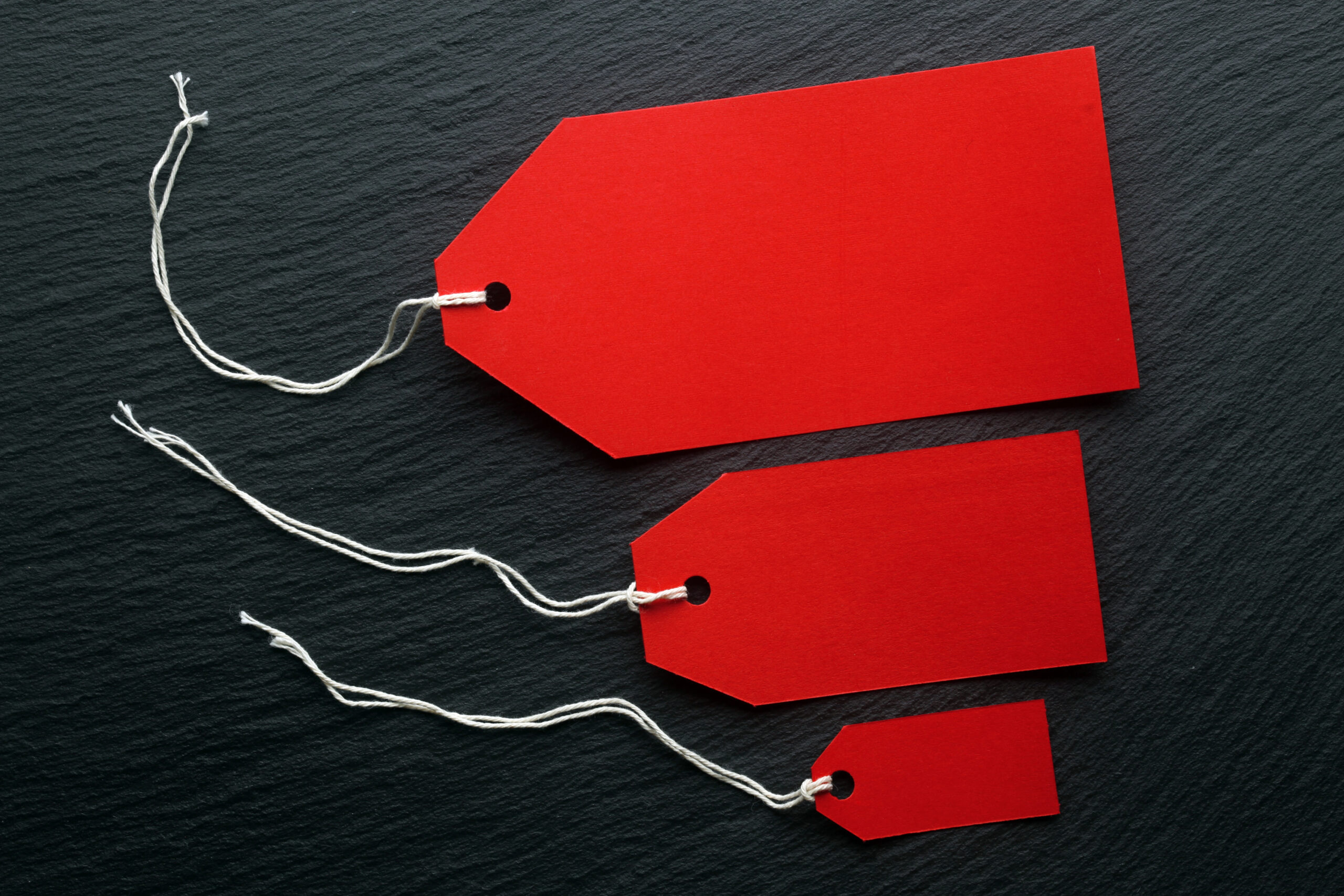It’s easy to have a queasy feeling about being in business. Between excesses on Wall Street that have caused major economic disruption around the globe, all the way back to the industrial revolution and exploitation of factory workers, business does not have a great track record for making life-affirming choices.
Yet you may find yourself in business anyway, struggling with the “yuck” factor simply because you don’t know how else to do it.
I’ve come to the inescapable conclusion that our businesses are birthed by abusive parents. The contemporary business culture and economy are the parents for your business and mine. We may have others in our lineage and our family ancestry, business-wise, but the most immediate parenting has been done by those two. And they haven’t been nourishing parents.
There has been an undeniable cycle of violence in business, and sometimes it seems we only have two choices: walk away from business practice and struggle to exist in this culture, or do business as it is, continuing the cycle of violence. Is it possible to really live in this global business family and not create a business that grows up to abuse people for their money?
It’s tempting to either repeat the patterns, because it works and you make money (sometimes), or to turn your back on it entirely, and do something other than be in business.
I’m not convinced that either of those choices is effective. Repeating the patterns because they are effective at generating income is not good enough, because the cost is too high, it weighs too heavily on our hearts. And yet turning our backs isn’t even possible, any more than a fish can turn its back on the water it swims in.
There has to be another way forward.
Locking Patterns in Place Through Hate
My wife Holly is a trained facilitator in System Constellation work formed by Bert Hellinger. In this work it’s believed that everything belongs. Nothing can be left out. When something or someone is denied, ignored, or rejected, an imbalance in the system results that can cause terrible dysfunction and trauma patterns.
Business has done this by externalizing and ignoring the human and environmental costs of doing business.
However, if we hate, reject, turn away from business in our hearts, then we are actually locking that pattern in place. Because it’s here. It happened. We can’t change the past. And System Constellation facilitators will attest that the more you ignore something that already exists, the more it demands attention.
Acceptance of something that has been painful doesn’t mean turning a blind eye to injustice and it doesn’t mean simply smoothing over problems by saying, “Well, that’s all in the past. Let’s just move forward and be happy.”
Acceptance includes grief for what has happened and what is. Acceptance includes naming the secrets that have been hidden, which is why honest journalism and support for whistle-blowers and others who speak out is so important.
And yet, there’s a danger here. The pain can be so bad that our heart aches, leaving us wanting nothing more than to divorce ourselves from the pain. But divorcing ourselves from it gives us the space to then hate it, and attack it, to continue the cycle of violence.
The only answer I’ve found lies within the heart.
The Divine Is Always Present And Often Veiled
Ibn Arabi, the great 12th century Sufi teacher, explained that each thing exists to the extent that the Divine lends Its Presence to it, and each thing is separate to the extent that the Divine veils Its Presence from it.
A little esoteric, but precise, as Ibn ‘Arabi always is. Everything, everything is a manifestation of the Divine Presence. A thing can’t exist if it is not, at heart, made of the Divine.
To turn your back on business is to deny its Divine origin.
What happens in this human world of free choice is that we make decisions. Yet sometimes we’re not holding the consciousness of Source and love when we make those decisions. Making decisions in this way tends to create veils between us and the Divine Presence.
That veiling makes it even more difficult to find the love. So we make more decisions, compounding our entanglements.
This is how good-hearted people, people who love their children and truly care, make decisions that hurt others. It’s not that these business leaders are inherently evil. It’s just that they are experiencing pain and numbness that comes from being distanced from love. Instead of seeking love to alleviate their pain, they make decisions to try to soothe themselves, which often involve seeking power or money at the expense of love and life.
Obviously this is a huge topic, and I feel a little nervous, as if I’ve opened up Pandora’s box, in bringing it up. I can’t possibly get everything that’s needed to fully express my point of view into this one little article.
There is a way forward, however.
First Grieve the Pain
I go to the mall and see acres of concrete and stores filled with stuff people don’t truly need. I see hordes of people many of whom, to my eye, seem as if they might be lonely and disconnected from themselves.
I see the industrial wasteland created on the outskirts of Portland, and other cities I’ve lived in. I see so much damage. And I see how I contribute in living the life I do.
I grieve. I grieve all of this. I find that if I take the time to feel the grief when it does come up, it doesn’t occupy all of my time. It leaves me feeling a little cleaner, fresher, and with more clarity in my heart to move forward.
What happens if you give yourself even five minutes to acknowledge any grief you may carry about this?
Then Open Your Heart to Business
Healing and reconciliation first come not from trying to fix inequities, but in acknowledging wholeness. When someone feels whole and accepted, it’s much easier to accept responsibility for mistakes and wrongdoing, and then to make good.
Can you open your heart to accepting business as a whole? As abusive a parent as its been and continues to be, can you ask in your heart to see the Divine Presence that birthed it? The purity at the heart of business? That beauty that is possible in how business operates in this world?
What does your heart see?
Third Allow Your Own Imperfection
Unless you happen to be completely enlightened, know that your business decisions will be imperfect. You will make the best decisions you can, and they may still fall short.
However, if you remember that Source is at the heart of your business, and that love is always available, then you won’t get too far off track. Veils come up, they are expected. It’s the returning to heart and love that allows us to recalibrate and catch ourselves before we’ve added more veils to our veils and gone too far down the path of pain and hurt.
As I look around this world of ours I feel a sense of urgency. Love and healing is desperately needed. Business, which already plays such a large role in the world, can’t be removed from the picture. It must be returned, as close as possible, to its original state of love and Divine Presence.
If you agree, I’m asking you to help. Not to help bring love into business, but rather to join the many who are already doing the work of unveiling the love that is already present. Let’s join to stop the cycle of violence. With that effort we can do our work in the world, earn our living and gain our provision with a clear heart and a clean conscience.







29 Responses
As I was reading the start of your article, I was thinking, “wow, some of this sounds a lot like Systemic Constellations theory.”
And I find out that it IS.
I’ve been in love with Constellations since I first saw it introduced about four years ago. And now I’m finally training to be a group facilitator of it, beginning in two weeks.
Talk about synchronicity!
Yes, Mark, I’m on board. I do my best to have grounded and fully present conversations about money with my clients and inquirers. And with Constellations, I will be doing my part to heal the deeper layers of this disharmony in the legacy of business.
Thanks for writing about this. I love how your articles keep showing me that everything is connected.
Right on, Rachel- and congrats on stepping into the facilitator training- it’s awesome work. Holly received training as a facilitator- and it’s been wonderful to have that depth of understanding.
This article should be read by everyone who is in business. Fortunately (in the UK anyway) there’s a growing swell of small businesses who are working (and living) this way. It gives me Hope.
Peace,
Brendan
I’m so glad to hear it- I think there is a growing consciousness, and I love how many of us are playing a part. It gives me hope, too.
The link you make between our businesses and the abusive parents they come from is so apt.
We can’t runaway or ignore our roots and hope to find wholeness. I think most of us do carry this unresolved, often unnoticed, grief around business violence.
Thank you, Mark, for bringing the pain into the light of day.
Thank you, Susan- it’s so nice to see you here.
A powerful article, Mark, and I agree. Turning our backs on business is like deciding not to have children because some families are abusive. I’ve long thought that what we needed was more business, more ownership of the means of production, and not less.
Before the Industrial Revolution, most middle-class people in the U.S. did own the means of production: a family farm, a store, a trade shop, a law or medical office. They could see the effects of their decisions on their enterprises, on the land, and on their communities. The sheer size of business enterprises these days makes it easy for rank-and-file employees to numb out, to pay attention only to their own jobs and surroundings and ignore the externalities–because they feel we have no control over them.
I was dismayed to learn from a friend who works with nonprofits that wealthy people in the U.S. give proportionately less to charity than those in the middle-income ranges. Perhaps the numbness you mention also afflicts executives who might be in a position to change the way enormous companies do business.
Small business owners can certainly set an example, but how do we reach the big guys?
It’s true- around the turn of the last century, about half the country was self-employed, in agriculture and elsewhere.
I don’t know how to reach the big guys. And I know that, in the US at least, the majority of the jobs and businesses are small businesses. I’m thinking that it may partially be a bottom-up approach.
I also know friends and colleagues who do corporate consulting work who are working in the belly of the beast, so to speak.
This is an incredibly important article, Mark.
There’s a book here.
I have felt for some time that what you and others are working on is a quiet revolution.
Perhaps it will become less quiet this year?
Viva la Revolution!
I hope so!
Love and gratitude to you,
Judy
I’m not sure how quiet it is- but it’s definitely moving! 🙂
This is a wonderfully encouraging article, thank you. I’m reminded of the suggestion that we could decide to spend, say, 5 minutes worrying about EVERYthing that’s bothering us that day, thus freeing up the rest of the time for more positive ACTIONS – rather than getting sunk in low-level 24/7 despair. Thank you for the reminder – I need reminding daily too!
Thank you:-)
Hi Mark
You have managed to introduce deeply spiritual principles whilst still remaining grounded and real for us! Thank you so much for the depth of your observations and the insight this article provides.
Loretta
Dear friend: I was especially moved by the second action, opening our hearts to business. Commerce is, quite literally, an exchange at the crossroads of humanity. Business is our path to those crossroads, and doing business is a spiritual practice. Sometimes we realize it; sometimes we don’t. I am grateful for your skill at reminding us.
Hi Mark
Wow. What a wonderful article!
I’m always afraid of sounding a little bonkers when I see connections between people’s behavior at work and how they view and interact with themselves and their stuff/pain/past/relationships. And yes it is a Cycle of Violence – I agree.
I’ve dreamed of Employers who protected against their own worst tendencies by having little Creativity or Playful Meditation Stations where employers and employees can stop off and hang out throughout the day to help identify, unpick and learn to dissolve or at least acknowledge the extent to which fear, anxiety and unmet needs dictate how we communicate, create and sustain business. But ohh goodness that probably does sound a little bonkers!
I was brought up in a violent family and what I see around me, in all walks of life, is that violence is not always the obvert stuff of ‘abusive’ families but also exists in quieter and more shadowy ways in which we speak to ourselves and to each other. It’s not rocket science I know but criticism, misunderstanding upon misunderstanding, frustration, bullying, ignoring other people’s needs and labelling them as totally insignifcant to the wellbeing of one’s organisation – since people are viewed as inanimate objects and not flesh and blood things worthy of care and consideration.
But thankfully there are are lots of examples of political/social/cultural change which derive from small but lippy groups of people bravely doing their thing, creating their vision and spreading the word. So starting with small businesses and inspiring us to keep working on these issues in our own lives sounds mighty fine to me! In fact that’s a pretty wonderful gift to share.
Thank you Mark. A kind of gentle cry for battle but of the loving and compassionate kind.
Thanks for this!
@Solasan- I’m glad you found it encouraging- I find that giving space for grief always brings me hope.
@Loretta- Thank you for taking the time to let me know- really glad it landed for you.
@Molly- I struggled opening my heart to business so often when I was younger, it’s such a big practice for me.
@Leila- Thank you for bringing your voice to this- and I especially appreciate it because I was wanting to be so tender about using the abusive parent analogy, when I haven’t actually had that experience myself. To hear that it resonates for you really feels good.
And yes, violence starts in such subtle ways.
I think it’s also worthwhile saying that there are systemic issues in place- I said that talking about the Constellation work- and there are patterns in our government and organizations that make it very challenging for a single individual to make a big difference.
An individual can sometimes hold the hope of breaking free, but I believe we need to act collectively to make a serious difference with the water we’re swimming in.
Just in case anyone thought I was talking only about individual action in facing these kinds of systemic challenges.
Mark — Synchronicity abounds – I’m also a trained hellinger facilitator – I was stunned to see you reference his work! Very awesome. And Rachel, I’m using it with EFT and calling it Family Energetics. I’ll email you offline about it – small small world!
Hugs to all,
Deborah
.-= Deborah Donndelinger’s lastest post: EFT Welcome =-.
Small world indeed! 🙂 Hellinger’s work is well-known and very popular in Europe. I’m not sure why it’s so unknown here in the US- it certainly is a very powerful and effective model.
I wonder, Mark, if Constellations is less known in the States because we have a much more individualistic culture. We are younger and less consciously connected to our ancestors, therefore a set of healing theories entirely based on systemic ancestral connections might feel more challenging to our paradigm?
But oy, it is so needed!
Sounds like a marketing issue, as usual. 😉
Mark, this is such an important facet of spirituality and business – and I’m thankful that you took the leap to express it. Even the things in Pandora’s box were aspects of the Divine.
At the moment, what touches me most is the step of grief and of feeling the disharmony between what is sought and what is real all round us. Your request to take some time for it is a valid one, and I can feel the truth in my heart about the toll it takes to resist feeling.
So thank you for being a channel for Wisdom. Thanks for reminding me of what’s true.
Warmly,
Jen
.-= Jennifer Hofmann’s lastest post: Grape-scented delegation and dropping the ball =-.
Ah, grief. Thank you, Jen. Surprising how much space we have when grief is given the room it needs.
This article goes to the heart of why I fell in love with your work in the first place, Mark, and why I continue to follow your wisdom.
I can’t remember who said this, but something like: “Don’t waste energy tearing down the old, unworkable models. Instead, create new ones which make the old ones obsolete”.
By creating healthy, heart-centred models of business, you/we are doing just that.
Thanks as ever,
Corrina
.-= Corrina Gordon-Barnes’s lastest post: Truth, Action, Peace =-.
I believe we are. And, sometimes, I think, you do have to chip away at the old, unworkable models. Not the whole of our attention, but because the old, unworkable models hang onto life for all they are worth, if you don’t put some attention and resources into opposing or redirecting them, then you might find a tender new young model squashed.
One example is in Los Angeles, where the auto makers bought out and then destroyed the city’s popular and successful light rail system, thus paving the way, quite literally, for the sprawl and unsustainable design of Los Angeles.
If that buy-out and destruction had been stopped, LA might be a very different city right now.
Mark,
“Business does not have a great track record for making life-affirming choices.” Exactly. But it never was set up to support life. As Joel Bakan’s The Corporation highlights, corporations exist in law for 2 purposes: to make money for shareholders and to survive at all costs. As Joel also says, that tends to make them pathologically ruthless in the pursuit of their aims.
It’s this psychopathy that to my mind underpins the split between violence and love. I spent 20 years working on the people side of business (in HR and consultancy), believing that one day the organisations I worked with would wise up to the real role and value of people; that they’d become 3D and not 2D in their approach. If I ever needed to confront how far from reality that currently is, the last eighteen months have more than done that. I have, now as a coach, seen and heard through my client work, of some of the most awful things being inflicted on people by their companies. Grief really is what I feel for all that has and is still going on.
I also believe, however, that we all play our part in this game. It’s not enough to “blame” big companies for their craziness; we have to also understand what’s missing in us that has attracted us to the abuse. Only by seeing our own part in the drama, can we begin to heal ourselves. And only in healing ourselves can we begin to offer the love to the world that it so desperately needs at this time.
Like you, I despair for the leaders of big business. Many are unaware of the consequences of their actions. Others, as they become aware, become conflicted in how they can continue in their big roles.
But there is an awakening going on at work. People are asking, “Is this is?” and starting to look for more. System change will happen, I think, as a consequence of a critical mass of people awakening to love and taking their hearts with them into whatever it is they do.
.-= Christine Livingston’s lastest post: What you can learn from walking 10 miles in the snow =-.
“I also believe, however, that we all play our part in this game. It’s not enough to “blame” big companies for their craziness; we have to also understand what’s missing in us that has attracted us to the abuse. Only by seeing our own part in the drama, can we begin to heal ourselves. And only in healing ourselves can we begin to offer the love to the world that it so desperately needs at this time.”
Well said. It also suggests we can be part of the solution and not just hope the pain will eventually get bad enough to force “business as usual” to shift.
.-= Judy Murdoch’s lastest post: In Which I Learn to Be A Goober With A Video Camera =-.
Thanks, Judy. I believe we have to be part of the solution.
.-= Christine Livingston’s lastest post: 3 lessons on work and life from walking 10 miles in the snow =-.
Hanging out here is a good place to start.
Hi Christine,
It so true, that’s where corporations have ended up. My understanding of the history of corporations, however, is that there is something a littler nobler embedded in the heart.
If I’m not mistaken, the first corporations were projects taken up that were too large for private citizens to handle, such as road-building. So, a corporation was allowed to be set up temporarily, with a life-span the length of the project, to protect the private citizens so they could come together and invest resources to get a large “public works” project done that the government wasn’t wanting or willing to do.
In exchange for the risk, the members of the corporation were allowed a reasonable profit from the project. And then the corporation dissolved.
By making corporations permanent entities and, in that disastrous judicial case here in the US that gave corporations “personhood” we’ve gone far, far from the original intention of the corporation.